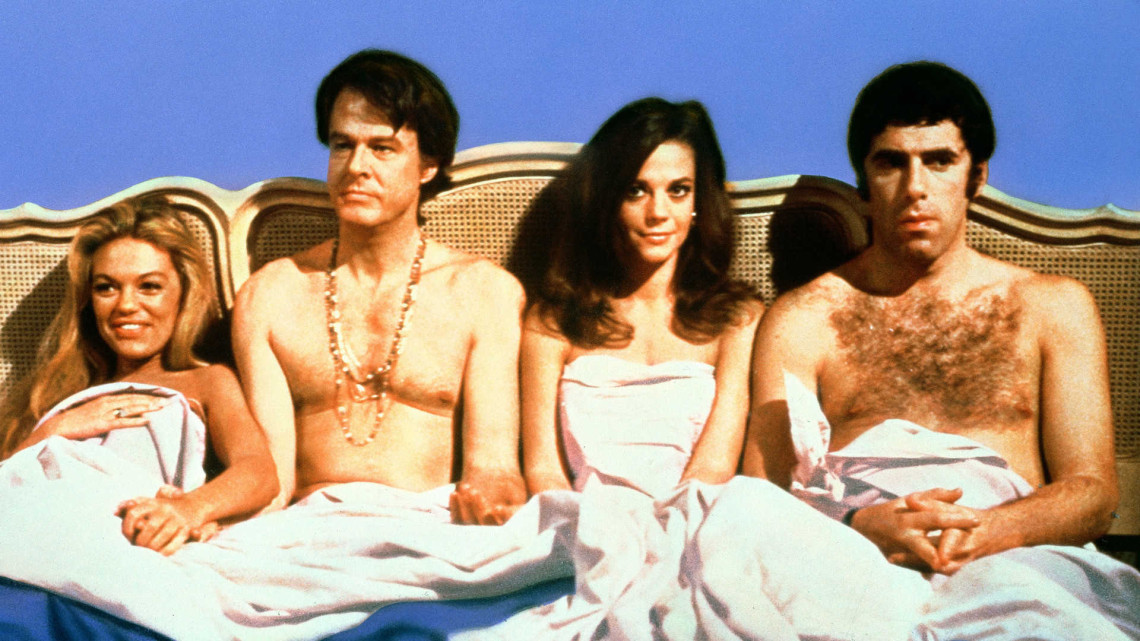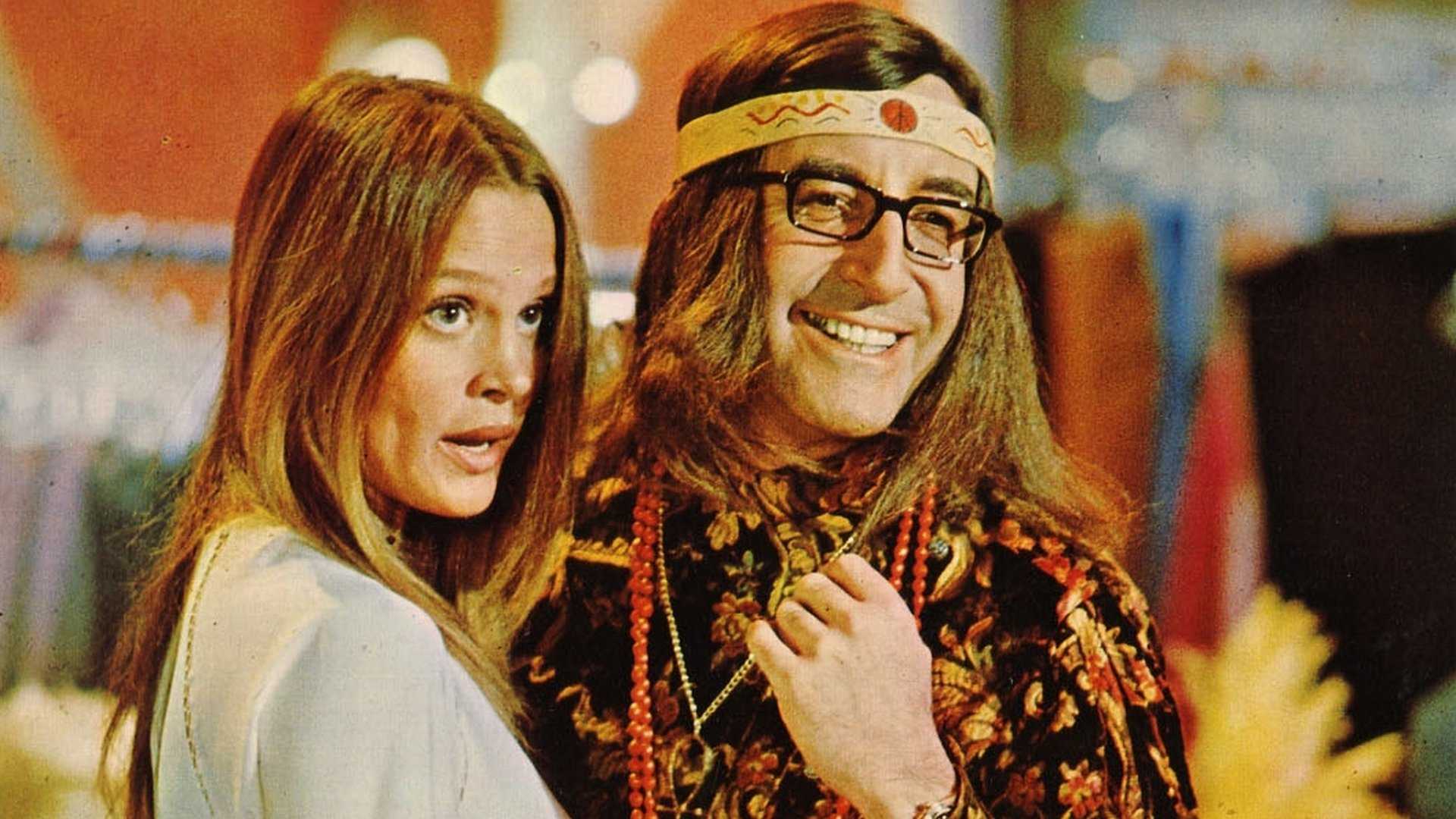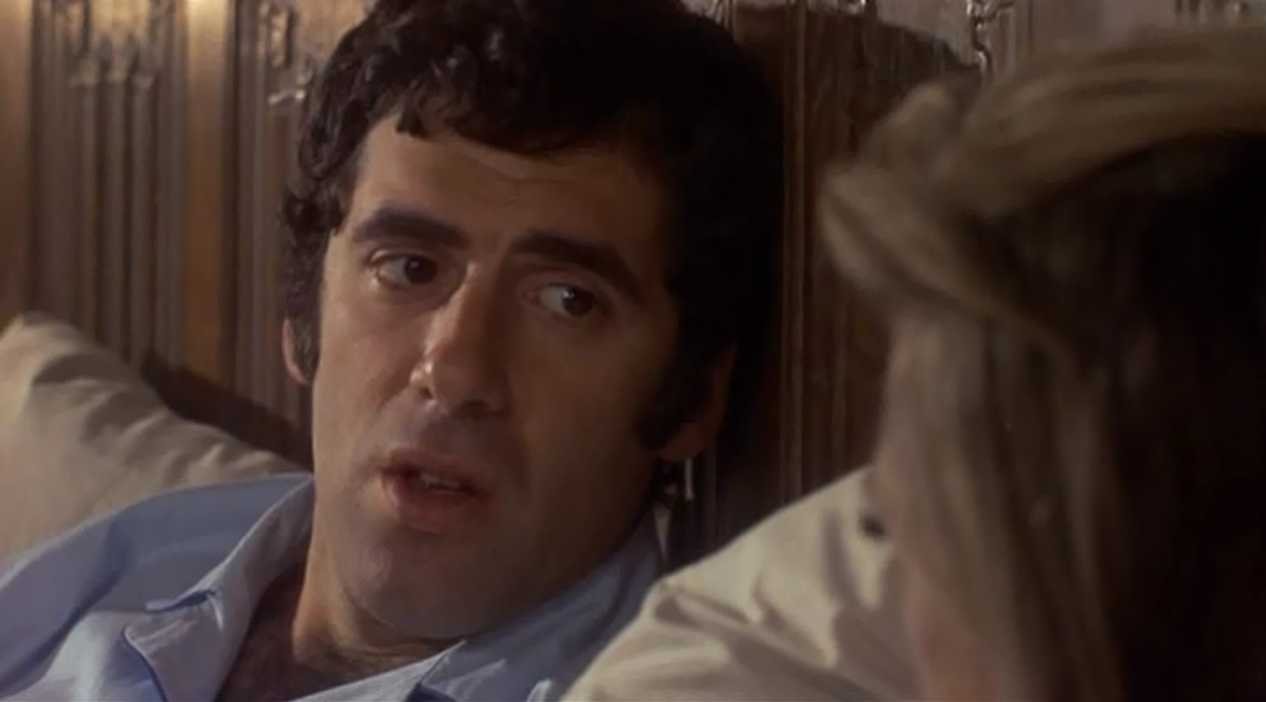Borrowing a line from his 1978 movie An Unmarried Woman, Paul Mazursky once described midlife crisis as a cross between Mary Hartman and Ingmar Bergman. “It’s on the edge of soap opera and the edge of real,” pondered the director, a sentiment that’s rarely echoed in contemporary films focusing on life’s usual dose of existential crisis. Mazursky best reevaluates the relationship between sex and adulthood in his two features I Love You Alice B. Toklas (1968) and Bob & Alice & Ted & Carol (1969), which he co-wrote with Larry Tucker.
I Love You, Alice B. Toklas and Bob & Carol & Ted & Alice are not awkward teen sex comedies. As the protagonists in the two films are in their mid-thirties and forties, the films refuse to employ naive erection jokes or wink at frontal nudity. These characters know how to make love; they have been going at it for a while and are in fact doing a pretty good job. Yet, the mere physical act of sex does not bring these middle-class, middle-aged squares any satisfaction. Sex becomes less a means of self-expression than a routine required by social expectations of a loving relationship. Frustrated with their emotionally barren lives, Mazursky’s adults seek to redefine sex in order to reconfigure their identities.
The openings of both films visually illustrate their characters’ internal dilemma, being comfortably situated within their own class and yet, perfectly displaced from the rest of society. As the 1960s is considered the age of free love, the married middle-class find themselves in a fish tank while everyone else around them–mostly young’uns–are having fun. In I Love You Alice B. Toklas, Harold Fine (Peter Sellers), a bland attorney strangely picked as the film’s hero, is glimpsed at through the front window of his car as he tries to navigate around a parking lot. Harold is trapped, but his vacant expression hints at his emotional repression. The scene is intercut with a guru preaching to a group of wide-eyed hippies on the futility of the modern lifestyle, which describes Harold’s existence as a 9-to-5 everyman. Like his last name, Harold is just fine, and that might be quite enough for him.
Similarly, Bob & Carol & Ted & Alice introduces viewers to a wide-angle shot of what could be considered the typical 1960s fantasy: a hippie commune populated by beautiful, half-naked women dazedly turning their arms towards the sun. Bob (Robert Culp) is a documentary filmmaker who brings along his wife, Carol (Natalie Wood) on a trip for a supposedly enlightening group therapy session that’s ostensibly for research. They first appear to be completely in sync with each other, yet after a mere 10 minutes, break down while confiding that their marital communication is rarely truthful. They return from their trip a changed couple, and encourage their friends, Ted (Elliot Gould) and his spouse Alice (Dyan Cannon), to do the same (incidentally, Alice is the kind of person who can’t even say the word “vagina” aloud.) Their new attitude is so drastic that it feels like a performance. The tragedy lies in their genuine yearning for human connection and the ridiculous extent they go to achieve it.
By compartmentalizing their characters’ social lives, I Love You, Alice B. Toklas and Bob & Carol & Ted & Alice prove that for these people, there are two kinds of sex. The first is what they nostalgically, perhaps erroneously remember sex was like as teenagers, when making love could somehow open up horizons and turn them into more complete and satisfied human beings. The second sort is what they ultimately have once they hit their thirties: the wholesome sex you find in Doris Day movies, titillating to keep two people in a relationship but not too racy to be frowned upon. The two films see these characters drifting away from their socially acceptable adult fun to a more soul-searching kind of lovemaking.
As a result, the characters in I Love You, Alice B. Toklas and Bob & Carol & Ted & Alice are in a state of arrested development. Youth is blessed with the privilege of evading responsibilities, thus leading Harold, Bob, Carol, Ted and Alice to stray away from their adult life by blending in with youngsters and having the same kind of sex that the kids are having. Harold ditches his well-behaved, blonde girlfriend at the altar for longhaired Nancy (Leigh Taylor-Young) who has an uncanny knack for making pot brownies. Unlike an earlier sex scene featuring Harold and his ex-girlfriend that’s filmed from a distance in which they remain far too dressed for the activity, his lovemaking with Nancy is sensually depicted with close-ups of the steamy, lyrical movements of their bodies. Sex with Nancy is rejuvenating, and Harold clings on to the act as a means to redefine his identity.
In the same fashion, the eponymous ladies and gentlemen of Bob & Carol & Ted & Alice also embark on their own sexual experiments. After finding out that Bob has an affair with a younger woman, Carol is not at all angry but instead, thanks her husband for being truthful. Their bond becomes stronger than ever and Carol herself takes on a tennis instructor, with whom Bob shares an extremely civilized drink. The couple’s infidelities inspire Ted and Alice, and the comedic climax escalates when the four friends deliver one of the best lines in the film, “First we have an orgy, and then we’ll go see Tony Bennett.” By deciding to swap their partners, the two couples deliberately divorce sex from love, a concept that is fundamentally abstract and heavily determined by social constraints. It is a pure act of physical rebellion. On the outside, Bob, Carol, Ted and Alice might operate under the social definition of marriage but in the dark, they they are bold enough to take off the illusory cloak of monogamy.
Despite their enthusiasm, these late-in-life rebels ultimately realize that sex is not the answer in breaking free from their internal crisis. A particularly hilarious scene in I Love You Alice B. Toklas has Harold following a guru on the beach. While he swallows every single word of wisdom from the older hippie, Harold’s bare feet keep sidestepping on rough sands as he hops along like a rabbit. Harold’s mind might be intellectually committed to the philosophy of the free-love movement, but his tender body can’t handle the hardships of a hippie’s life.
The orgy in Bob & Carol & Ted & Alice also never takes place. The camera gazes lovingly on the two couples as they are intertwined in each other’s embraces. All of a sudden, they gradually stop and just lie in bed wordlessly and completely still. Not only are they held back by their respectable social morales but, more importantly, they realize the possibility of ruining another important type of relationship: their friendships. While Bob, Carol, Ted and Alice successfully separate sex from love, they fail to link sex to any meaningful self-discovery. In other words, having sex with many other people does not necessarily improve one’s marriage. Love and understanding have to come from somewhere else.
Both movies end on a note of ambivalent individualistic triumph. In I Love You, Alice B. Toklas, after Harold falls out of place with his middle-class life, he then proceeds to do the same with his newfound hippiedom and resolves to get back to his old habits. For the second time, he’s at the altar with his fiancee and, in a surprising twist, runs away from his own wedding again. “I don’t know and I don’t care,” shouts the poor attorney as he sprints, “but there’s gotta be something beautiful out there.” His optimism is both tragic and touching, as “something beautiful” might just be another fantasy of fighting against the banality of adulthood. But at least he’s an outsider again, ready to make decisions free from social determination.
Bob & Carol & Ted & Alice, on the other hand, stresses individualism as a necessary catalyst to social bond. After their failed orgy, the two couples step out to the theater, where suddenly bystanders start to gather into a circle while What the World Needs is Love plays in the background. They turn to face one another, much like a practice done at the group therapy session earlier in the film–but this time, they’re not being coached. Their desire for human connection comes organically from within. In Mazursky’s eyes, adulthood is frustrating and uneasy, but at least no one is alone in their confusion.



















